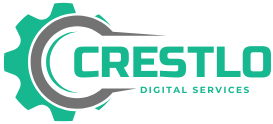What is Ecommerce SEO?
Ecommerce SEO is the process of optimizing an online store to rank higher in search engine results pages (SERPs). It involves strategies designed to attract organic traffic by enhancing visibility, usability, and relevance of your website to search engines and users.
Why is SEO Essential for Ecommerce Websites?
SEO is vital because it helps your products and pages appear in search results, where potential customers actively seek solutions. Unlike paid ads, which stop bringing traffic once you stop spending, SEO builds long-term, sustainable growth.
Key Elements of Ecommerce SEO
Keyword Research for Ecommerce
Finding the right keywords is the foundation of successful Ecommerce SEO. Tools like Google Keyword Planner, Ahrefs, or SEMrush can help identify high-volume, low-competition keywords. Focus on buyer intent keywords, such as “buy,” “cheap,” and “best.”
On-Page Optimization
On-page SEO involves tweaking elements on your site to improve rankings:
- Meta Titles and Descriptions: Create compelling, keyword-rich meta titles and descriptions for every product page.
- Product Descriptions: Write detailed, unique, and engaging product descriptions to stand out and provide value to shoppers.
Site Architecture and Navigation
A well-structured site makes it easier for search engines and users to navigate:
- Use intuitive categories and subcategories.
- Link related products to improve internal linking and boost user engagement.
URL Structure
Clean and descriptive URLs help users and search engines understand your pages better. A good example: www.store.com/category/product-name. Avoid clutter and unnecessary parameters.
Mobile Optimization
With most shoppers using mobile devices, a mobile-friendly design is non-negotiable. Responsive designs and fast-loading pages are critical for a great user experience.
Page Load Speed
A slow website can drive customers away. Tools like Google PageSpeed Insights or GTmetrix can help analyze and improve your site’s speed. Optimize images, enable caching, and minimize JavaScript to improve performance.
Secure and Accessible Website
Google prioritizes secure websites. Ensure your site has HTTPS encryption and is accessible to all users, including those with disabilities.
Content Strategies for Ecommerce SEO
Creating High-Quality Product Descriptions
Unique product descriptions are essential. Avoid copying manufacturer content, as duplicate content can harm rankings. Instead, focus on what sets your product apart.
Blogging for Ecommerce
Blogs are a great way to bring in organic traffic. Write about trending topics, how-to guides, or industry insights to engage readers and subtly promote your products.
User-Generated Content
Customer reviews and testimonials not only boost credibility but also add fresh, relevant content to your site, improving SEO.
Off-Page SEO Techniques
Backlink Strategies
Building quality backlinks is crucial. Collaborate with influencers, industry blogs, or publications to gain links that improve your site’s authority.
Social Media and Its Role in SEO
While social signals don’t directly impact rankings, they help drive traffic and improve brand recognition, indirectly boosting your SEO efforts.
Analytics and Monitoring
Tracking SEO Performance
Use tools like Google Analytics, Google Search Console, or Ahrefs to monitor your site’s performance. Identify what works and refine your strategies accordingly.
Conclusion
Ecommerce SEO is a long-term game, but the results are worth it. By focusing on these strategies, you can create a website that not only attracts traffic but also converts visitors into loyal customers.
FAQs
- What are the best tools for Ecommerce SEO?
Tools like Google Analytics, SEMrush, Ahrefs, and Moz are great for tracking performance and conducting research. - How does mobile optimization affect SEO rankings?
Mobile optimization is critical, as search engines prioritize mobile-friendly websites in their rankings. - Can I do Ecommerce SEO without hiring a professional?
Yes, but it requires learning the basics and dedicating time to implement and monitor strategies. - What are the common mistakes in Ecommerce SEO?
Common mistakes include neglecting mobile optimization, using duplicate content, and ignoring site speed. - How long does it take to see results from Ecommerce SEO?
Typically, results can take 3-6 months, but this varies based on competition and implementation.

